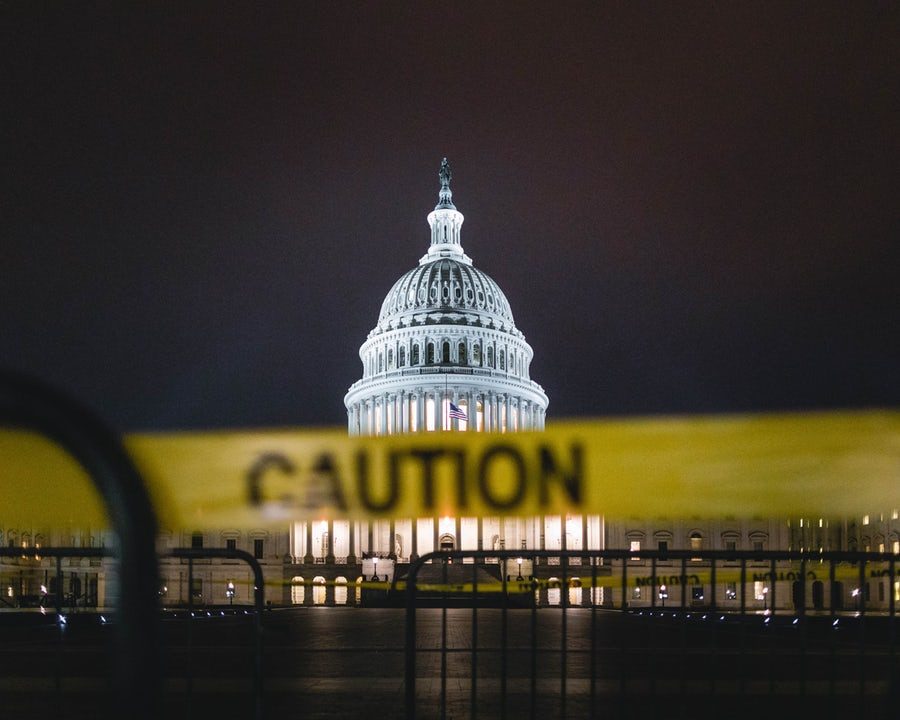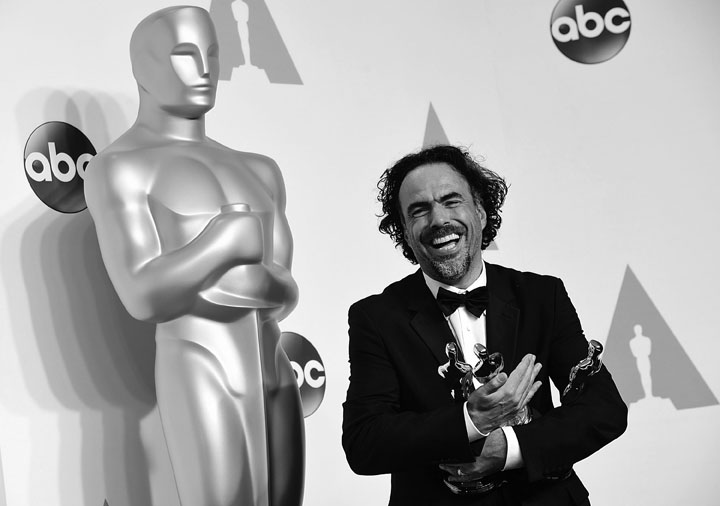Neil Patrick Harris hosts the 87th Academy Awards
Alejandro G. Inarritu accepts the award for best director for “Birdman or (The Unexpected Virtue of Ignorance)’’, in the press room of the 87th Academy Awards on Sunday, Feb. 22, 2015, at the Dolby Theatre in Hollywood. (Ian West/PA Wire/TNS)
April 8, 2015
The 87th Academy Awards, hosted by veteran host Neil Patrick Harris, honored Hollywood’s “best and whitest” in the movie industry. Harris, who has previously hosted the Tony Awards four times and the Emmys twice, opened the show by purposefully mistaking “brightest” for “whitest” as a criticism of the lack of diversity in the nominations, and then started into a “Motion Picture” musical number.
Birdman, a dark comedy-drama about a washed-up Hollywood actor struggling to shed his image as superhero Birdman by starring in a Broadway play, took home the majority of the biggest awards of the night, including Best Director for Alejandro González Iñárritu, Best Cinematography for Emmanuel Lubezki, Best Original Screenplay for Alejandro González Iñárritu, Nicolás Giacobone, Alexander Dinelaris, Jr., and Armando Bo, and Best Picture.
The Grand Budapest Hotel, Wes Anderson’s unique, artsy comedy also won four Oscars, but in technical categories, including Best Production Design, Best Original Score, Best Costume Design and Best Makeup and Hairstyling.
Best Actress went to Julianne Moore for her portrayal of a women dealing with early-onset Alzheimer’s in Still Alice, and Best Actor went to Eddie Redmayne for his role as Stephen Hawking in The Theory of Everything. Both dedicated their awards to the real people struggling with the disorders their characters had, Alzheimer’s and ALS, respectively.
“I’m so happy, I’m thrilled that we were able to shine a light on Alzheimer’s disease,” Moore said. “So many people who have this disease feel marginalized. People who have Alzheimer’s disease deserve to be seen so we can find a cure.”
The New York Times called the overall ceremony an “awkward” mix of social activism and traditional segments. Many winners used their acceptance speech as a way to bring awareness to an issue they felt was important, such as Best Supporting Actress Patricia Arquette, who won for her role in Boyhood and called for gender equality, causing both Meryl Streep and Jennifer Lopez to stand out of their seats and cheer.
“To every woman who gave birth to every taxpayer and citizen of this nation, we have fought for everybody’s equal rights. It’s our time to have wage equality once and for all, and equal rights for women in the United States of America,” Arquette said.
J.K. Simmons, who won for his role as an abusive music teacher in Whiplash, urged the audience to call their mom or dad and, “tell ‘em you love ‘em, and thank them, and listen to them for as long as they want to talk to you”.
Rapper Common and John Legend performed a powerful rendition of their song Glory from Selma, which brought David Oyelowo, who portrayed Dr. King in the movie, to tears and earned a standing ovation. They then won the Oscar for Best Original Song and used their acceptance speech to call attention to voting rights.
“We say that Selma is now because the struggle for justice is right now,” said Legend. He noted that the Voting Rights Act, whose passage is chronicled in Selma, has been drastically scaled down in recent years.
Best Adapted Screenplay went to Graham Moore for The Imitation Game, and in his speech he encouraged young viewers, especially those who feel like they do not fit in, to “stay weird, stay different, and when it is your turn and you are standing on this stage, please pass the same message along”.
Box-office hits seemed to be the biggest losers of the night, with the highest-grossing movie nominated for Best Picture, American Sniper, only earning one award for sound editing and Interstellar also taking home only one for visual effects.

















